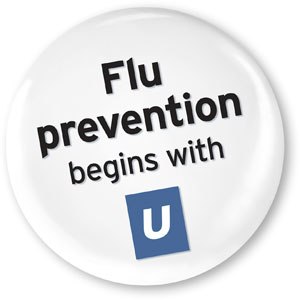Prevent the Flu and Open Minds?
Medical Pharmaceutical Translations • Feb 11, 2013 12:00:00 AM

If you step foot into a hospital right now, flu warning signs cover the walls. You are encouraged to wash your hands, cover your sneezes and get vaccinated.
What do disease prevention behaviors have in common with racism? They are both are rooted in fear. If it’s possible to gain protection against disease, is the same true of prejudice?
A series of studies published in 2011 conducted by scientists, Julie Huang, Alexandra Sediovskaya, Josh Ackerman and John Bargh investigate this possibility and conclude “Yes.”
Their first study, conducted in 2009, during the peak of the H1N1 swine-flu epidemic, had half of its subjects read news articles about the threat of the swine flu while the second half did not. They measured each group’s perceived effectiveness of the H1N1 vaccine, gave them a questionnaire assessing their attitudes towards immigrants and lastly asked if they were vaccinated against the flu.
Study results indicated people exposed to a disease threat corresponds to an increased anti-immigrant sentiment. However, people with a sense of protection from a vaccination displayed less prejudice than those not vaccinated.
The second study investigated attitudes toward seven “out-groups” (obese people, crack addicts, heroin users, illegal immigrants, Muslims, the homeless and disabled people) associated with health threats. All participants (whom were all vaccinated) read a passage about disease threat framed in one of two ways: a protective framework describing the vaccination as protecting people from the seasonal flu or a contamination framework describing the vaccine as involving “injecting people with the seasonal flu virus.”
They found framing vaccination as a “protective” function boosted positive attitudes towards “threatening” social groups relative to those reading the contamination framing.
A third study confirmed people “chronically concerned about disease transmission” had negative outlooks towards the previously mentioned social groups but asking participants to use an antiseptic wipe to clean their hands and their keyboards during the experiment erased those negative attitudes.
In their general conclusion, the study authors noticed a pattern in their results: “treatments for physical diseases, such as the flu, can also be used to treat social maladies, such as prejudice.”
Public health officials take note: there seems to be a connection between disease prevention and racism. Preventive actions like hand washing and vaccinations reduce the spread of disease as well as prejudice. We can be healthy and all get along.
Sherry Dineen
